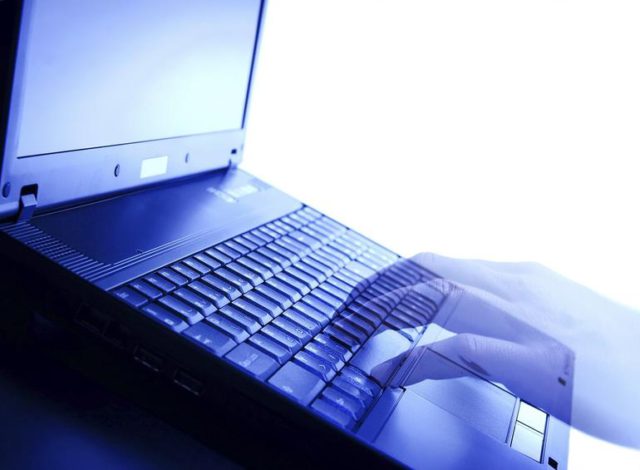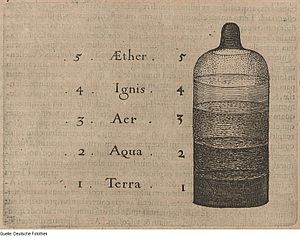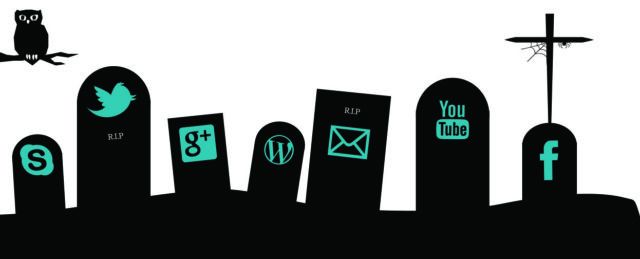What happens to our digital / web fingerprint after we are gone?

Instead of a preface
Even in my school years I attended yoga classes, nothing special, just general strengthening practices, hardening, in fact – exercise therapy. In addition to physical exercise, the mentor, of course, talked about the philosophical and theoretical side of yoga in a more serious sense. In one of these conversations, the conversation turned to the world around us, material and spiritual. The teacher, without going into religious and philosophical details, spoke about what has long been said about the four material elements defining our world (fire, water, earth, air) and one immaterial – the so-called 'ether'. Of course, then we, middle school students, did not understand much, but the information was deposited somewhere in a distant part of the brain for future rethinking. As time went on, the first mobile phones, computers, set-top boxes, portable players, etc. began to appear in our country. Slowly but surely, a new social aspect has entered our life – the network.
And it was at this time that lectures about the non-material world surfaced in my memory, it was then that the description of the ether as space without time and volume struck me with its similarity to the life that was gaining momentum on the network. With the advent of the popularity of social networks, the idea only strengthened and ceased to be something unusual, got used to it. This is not about esotericism and philosophy, but it seems to me that any sane person is aware of the increased presence of web activity in our daily routine. There are many reasons for this, they run counter to what I want to speculate about within the framework of this material, so we will not talk about them.

So, 'ether', a complex social and informational fast-growing environment, a means for receiving and disseminating information, a source of income and a place of shopping, a space with all the pluses and minuses. The importance of 'ether' should not be underestimated; it is an urgent, if not for everyone, trend that must be reckoned with. The number of scenarios for using a new dimension of human activity is beyond calculating; something new appears all the time. Many have found in it a way to realize their potential, have learned to use it for their own purposes. What is really there, you can often find examples of neglect of real events and people for the sake of the next session of scrolling through news and information feeds in popular services. The information and content of the network manifestations of our personality is gradually growing and accumulating, and we try not to lose what was created, regardless of the importance of what we created. Over time, people start to wonder what will happen to all this content after they die. This is natural, like the departure from life itself, but this material will not contain gloomy thoughts and philosophical delights, on the contrary, we will consider ways to beat the exit from the virtual world from the point of view of a practical and moral aspect.
First of all, it is worth deciding what exactly from the digital world can have value for the user. In my opinion, this can include profiles of a person in his frequently used social networks, personal email, accounts in large ecosystems (Android, iOS, WP and others), media files, and personal blogs and websites. Let's go in order.
Over time, the creators of large social networks realized the importance of the situation with the accounts of deceased users, and many of them have tools to work with them. Briefly about some of them:
- Facebook. Perhaps, here they approached the problem with maximum attention. The policy Facebook is that the user's credentials will not be shared with anyone, even after their death. The so-called memorial pages are available on the social network, into which you can turn the profile of a deceased user at the request of a relative with documentary confirmation of the fact of death. In this case, the page is marked with the appropriate status, information about the user is deleted, the login and password are deactivated, the username is excluded from the search results (only friends can find it) and the section 'You may know them', the ability to edit the page and view private messages is disabled, remain available comments and photos from friends. Also, within the framework of the service, the transfer of an account by inheritance is available, in the settings this function is called 'Keeper'. They can become a relative or close friend, he will subsequently be able to post messages on his own behalf on the principal's page, respond to new requests to add friends (it is doubtful that this will happen, but there is a chance), change the profile photo. Personal messages and posts on behalf of the deceased will not be available to the keeper. The user can also indicate that the account should be completely deleted after a certain period of inactivity.
- Google. Among the services of the company, Inactive Account Manager has been operating for three years, in the Russian version – 'Just in case'. The service allows you to select a trusted person, specify his mobile phone number and after the specified period of inactivity, an SMS will be sent to him, giving the person the right to manage the principal's account. Quote: 'Deleting a Google account will affect all related services in different ways, such as Blogger, AdSense, Gmail, etc. You can check what data is stored in each of your services in your Personal Account. If you use Gmail, after deleting your account, you will lose access to it. You also won't be able to re-register the same Gmail username. '
- . By analogy with Facebook, the company does not provide access to the account to anyone, regardless of the degree of relationship. Upon request with a death certificate attached, the account will be deleted within 30 days; in some cases, upon request, photographs of a person posted as part of the service are also deleted.
- VK. Users can write to technical support with a request to delete the profile of a deceased person, attaching the appropriate documentary evidence of the death.
Third-party services have also not avoided this problem. Several times I met the mention of such a service as Legacy Locker (literally 'legacy locker'), which is now part of PasswordBox. As part of the service, users are offered a choice of three options: a free account that allows you to store information about three accounts and transfer to the specified single recipient who will gain access to the specified accounts and write a letter on behalf of the principal to the specified recipients, an annual subscription ($ 30 per year, unlimited number of accounts and recipients, as well as addressees for letters), lifetime subscription ($ 300 one-time). For those who like the idea of keeping their social media active, the DeadSocial service was created, which makes it possible to plan and compose future tweets / posts and so on. Also, advanced users can encrypt their data by giving the 'key' to the closest people. In this case, there is no need to turn to a third-party service, but only to appoint an executor of your 'digital will'. And, of course, no one canceled the preservation of media content within one of the hosting or on a reliable medium.
Aspects of
It is difficult to achieve a single position on the problem, the whole point is in the nature of the issue and how people relate to it. First of all, the moral aspect arises: what is better – to delete the digital fingerprint for good, save it somewhere in the archive, leave it as a memory and the opportunity to remember certain moments / ideas / events, or transfer account management to someone trusted? It seems to me that no one can say unequivocally, the system of sensory perception is not a standardized category, and therefore 'out of sight' can help one, but even more traumatize another, and a similar situation is also true for an approach that demonstrates the alleged presence of a person in networks, likes on his behalf, posts and so on. Here the user who decides to regulate his online outcome should decide what will be better for his relatives, friends and relatives. Public figures, while still in good health, often use the services of social media managers who manage their accounts in order to attract even more users, so why not transfer this practice to the off-air space? Well, and a completely different question – the transfer of the right to maintain this or that account by inheritance.
We have come to the legal aspect. In situations where a promoted site or blog is a tool for making money, who will this money go to after the death of the owner? Or will the site just run out of hosting and everything a person has invested will simply disappear? Can relatives have the right to own the created content? As far as I know, the legislative framework does not yet contain instructions on actions in such situations, which is absolutely unacceptable, if people are interested in getting acquainted with the content, then why not leave it in a special corner of the vast Internet web, at least for a small group of caring people, especially if it will allow you to receive income for some time. There are known examples when the right to blog a writer after his death was transferred to another person, even if the reaction was ambiguous, but the philosophy and work of a person's life continued to live in spite of everything.
Conclusion
The problem is much more complicated than it seems, there are a lot of variables, with all the desire, the search for the truth can be unnecessarily delayed. Nevertheless, adequate and intelligent people in any case will take some proactive measures to minimize the consequences of the actions of loved ones in a state of passion, under the influence of their own grief. Nowadays, there are maximum opportunities to properly dispose of the array of content that has accumulated over the years of activity on the network. I am sure that there will be those who will declare the futility of this whole venture, well, the opinion has a right to exist. Supporters of the 'digital heritage', in my opinion, will make a deliberate and right decision for them.
Again, a big obstacle in the process is the lack of clear laws in this area. Discussions of such bills were conducted by the United States, as far as I know, they did not result in anything significant. In light of this issue, equating web materials with intellectual property seems to be a logical step, although I'm not sure about the legal side. I would like to note that the purpose of this material is not to immerse the reader in sad and dark thoughts, on the contrary, we tried to consider ways to rationalize a little the consequences that the natural process of exodus from the real and virtual world can bring in the lives of people dear to us.

